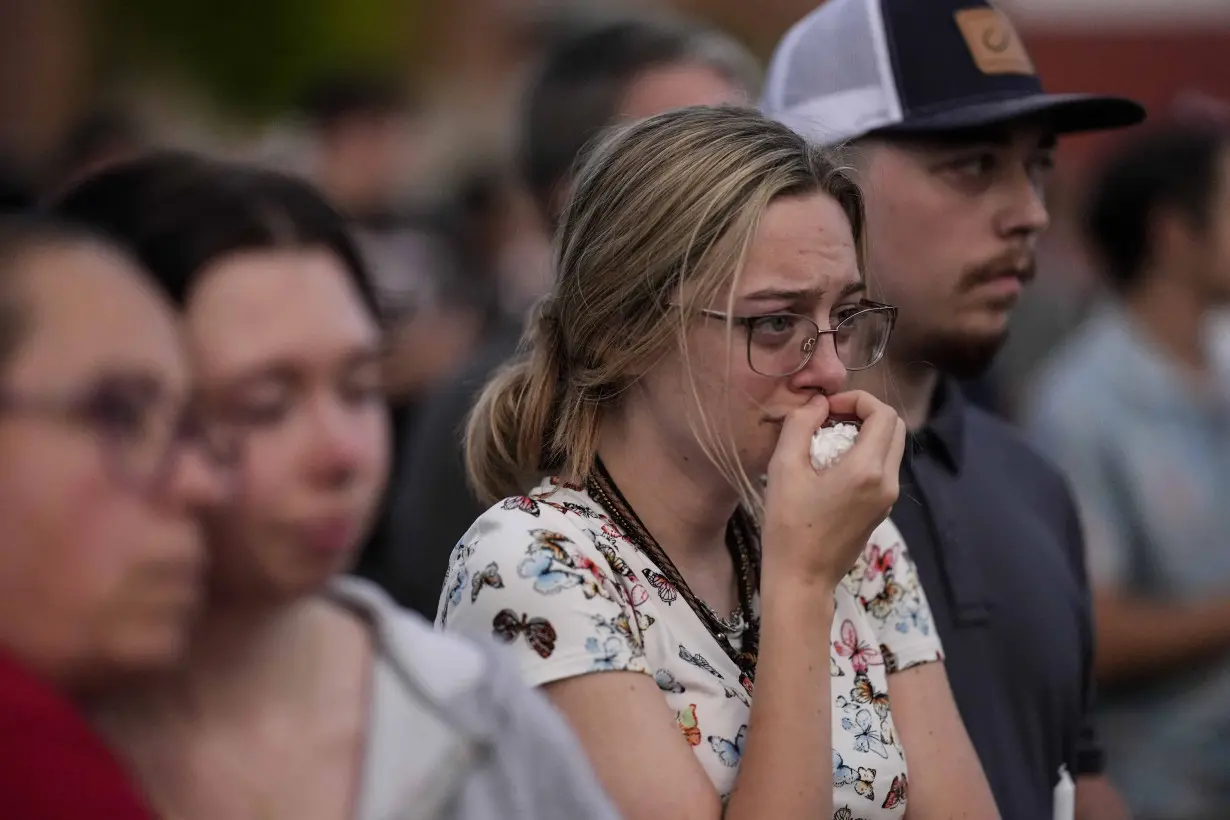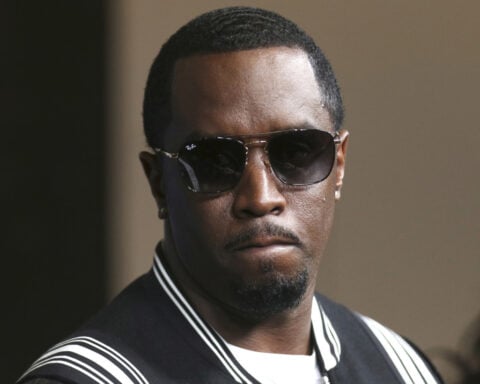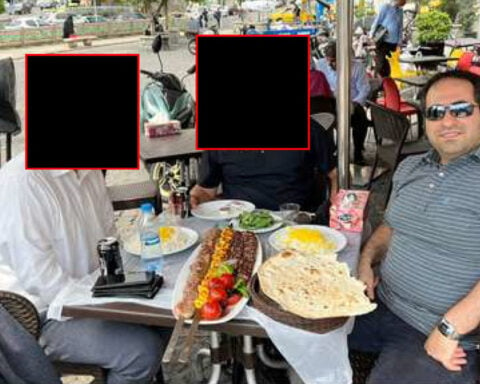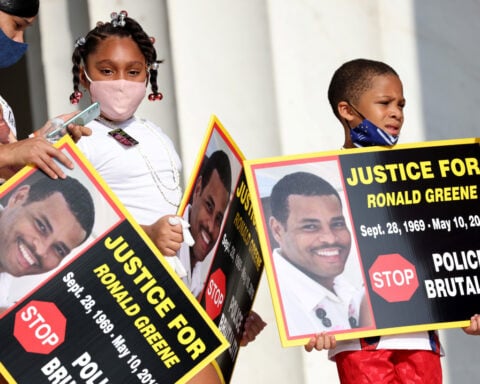Mass shootings have effects on communities that are felt long after the day's tragedy. School shootings in particular can have physical, emotional and behavioral effects on kids — even if the shooting occurred on the other side of the country.
Exposure to school shootings, even if indirectly, is shown to disrupt people’s sense of safety and stability, said Sonali Rajan, professor at Columbia University, who studies firearm-related harms on children.
Talking about it can help.
Parents aren't alone in this task. Many health experts, including psychologists and grief counselors, remind people there are resources to support students’ mental and emotional health as they grieve and process.
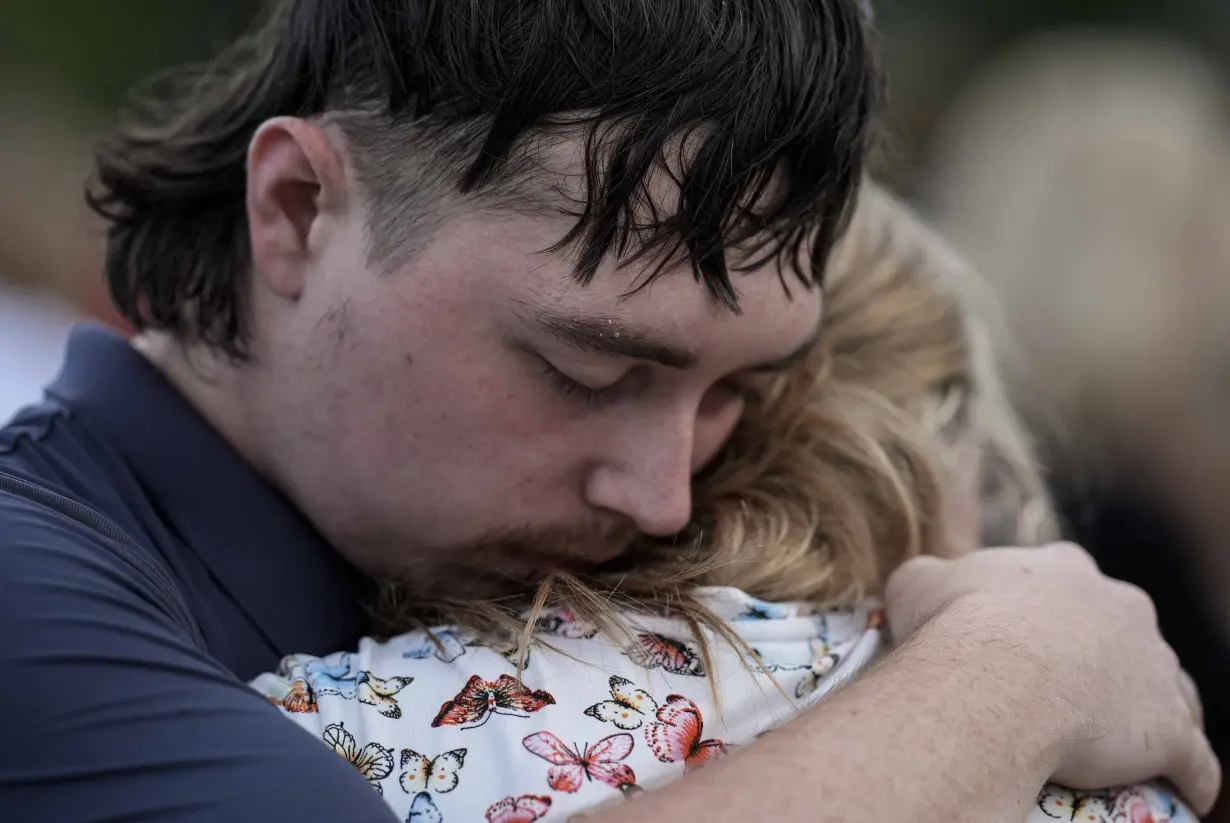
Here's how they say families should address traumatic experiences with their kids.
It takes time to process emotions, regardless of age, so adults should start by taking care of themselves. That said, experts encourage parents to have conversations with their children and not avoid the topic, if kids indicate a willingness to talk about it.
“If they are not hearing about it from you as their parent, they will hear about it from their friends at school,” says Emilie Ney, director of professional development at the National Association of School Psychologists.
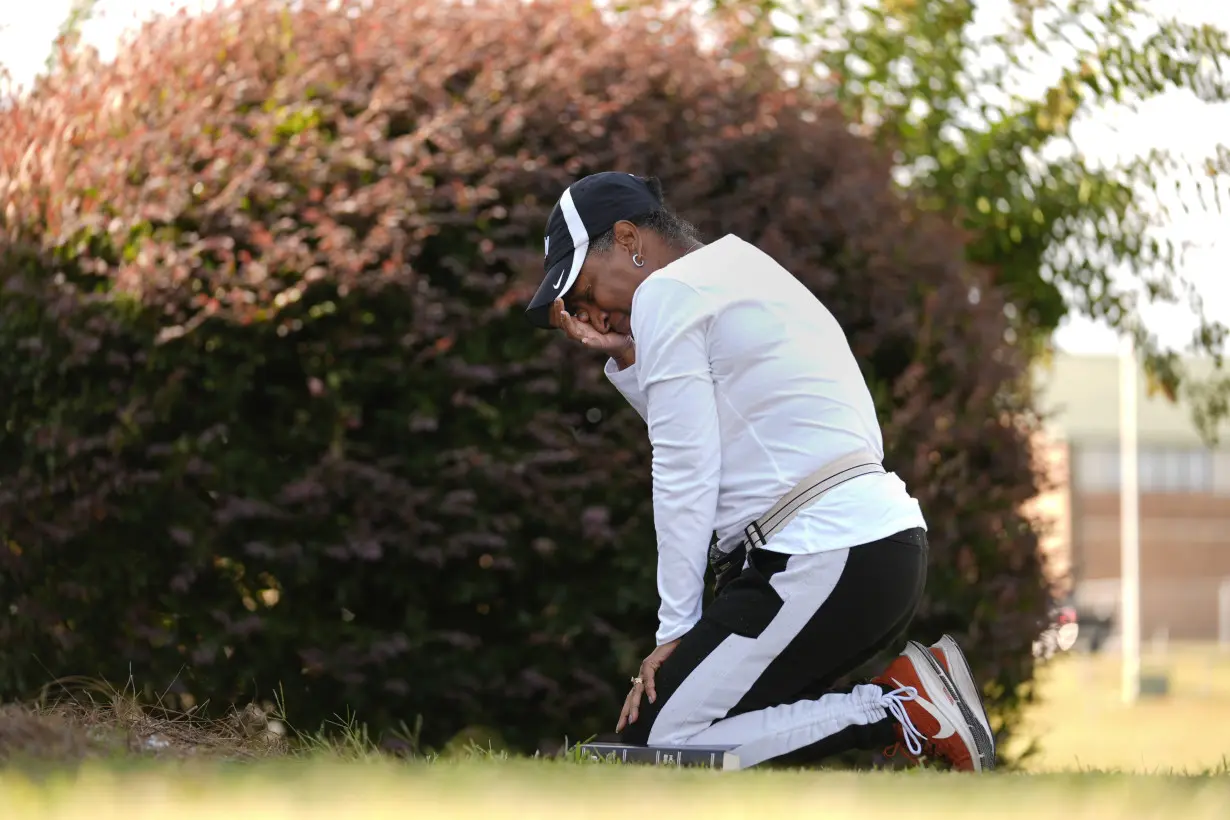
It's OK for caregivers to say they don’t have all the answers and not force the conversation, according to guidance from the National Child Traumatic Stress Network. Being available and patient is key.
This isn't just a job for parents and guardians. All adults should remember to be available for the kids in their life. After all, not all children have trusted adults they can speak with, said Crystal Garrant, chief program officer at Sandy Hook Promise, a nonprofit group that works to prevent suicides and mass shootings.
For instance, she said, adults who work in before-school or after-school programs should ask the kids in their care open-ended questions, do community-building activities or provide kids with other opportunities to share openly. They may not have the opportunity to do so otherwise.
How much children are able to understand a situation will depend on their age and development, Ney said.
“There is no specific age target for these conversations,” said Garrant, who has a 9-year-old daughter. “But make sure that younger children understand the word that you’re using. When we say safety, what does it mean to feel safe? How does it feel in your body? What does it sound like when you’re not safe?”
Some children may have emotional and behavioral responses to traumatic events, such as anxiety, nightmares or difficulty concentrating.
Younger children need simple information and reassurances their schools and homes are safe, guidance from the National Association of School Psychologists notes. Older children have a deeper capacity for understanding and could benefit from hearing about what agency they might have to keep themselves safe.
Recognizing, acknowledging and validating children's emotions are key, said Beverly Warnock, executive director of the National Organization of Parents of Murdered Children based in Cincinnati.
“You need to get those feelings out and be honest," she said. "Don’t try to squash the feelings or not talk about it. It’s something that will be with you for the rest of your life.”
The process of navigating emotions after a shooting can be confusing and frustrating for people, Ney said.
“The stages of grief are not necessarily sequential. People may go in and out of the various different phases, and it may be that it doesn’t really hit someone until a week later," Ney said.
Psychologists hope to reassure people their feelings are normal and they don't have to pretend they are unaffected.
“Even if you didn’t know anyone involved, even if they were very far away from you, it is okay to grieve,” Ney said. “It shows that you care about others.”
After acknowledging the emotional response, Warnock said, there is comfort in knowing life goes on.
“You will find a coping skill, and you will be able to enjoy life again,” she said. “You may not feel that way now, but it does happen. It’s just going to take some time."
If you or someone you know are experiencing distress because of a mass shooting, you can call the 24/7 National Disaster Distress Helpline. The number is 1-800-985-5990, and Spanish speakers can press “2” for bilingual support. To connect directly to a crisis counselor in American Sign Language, call 1-800-985-5990 from your videophone.
___
The Associated Press’ education coverage receives financial support from multiple private foundations. AP is solely responsible for all content. Find AP’s standards for working with philanthropies, a list of supporters and funded coverage areas at AP.org.

 TikTok seeks to reassure U.S. employees ahead of Jan. 19 ban deadline
TikTok seeks to reassure U.S. employees ahead of Jan. 19 ban deadline
 US won't seek charges in unarmed Black motorist Ronald Greene's fatal 2019 arrest
US won't seek charges in unarmed Black motorist Ronald Greene's fatal 2019 arrest
 Euro zone households could increase consumption, ECB chief economist says
Euro zone households could increase consumption, ECB chief economist says
 Foreigners sold South Korean equities last month by most since early 2020
Foreigners sold South Korean equities last month by most since early 2020
 Trump and Biden national and homeland security staff will meet Wednesday for threat exercises
Trump and Biden national and homeland security staff will meet Wednesday for threat exercises
 As fires ravage Los Angeles, Tiger Woods isn't sure what will happen with Riviera tournament
As fires ravage Los Angeles, Tiger Woods isn't sure what will happen with Riviera tournament
 Antetokounmpo gets 50th career triple-double as Bucks win 130-115 to end Kings' 7-game win streak
Antetokounmpo gets 50th career triple-double as Bucks win 130-115 to end Kings' 7-game win streak
 No 97 Laura Siegemund upsets Olympic champion Zheng Qinwen at the Australian Open
No 97 Laura Siegemund upsets Olympic champion Zheng Qinwen at the Australian Open
